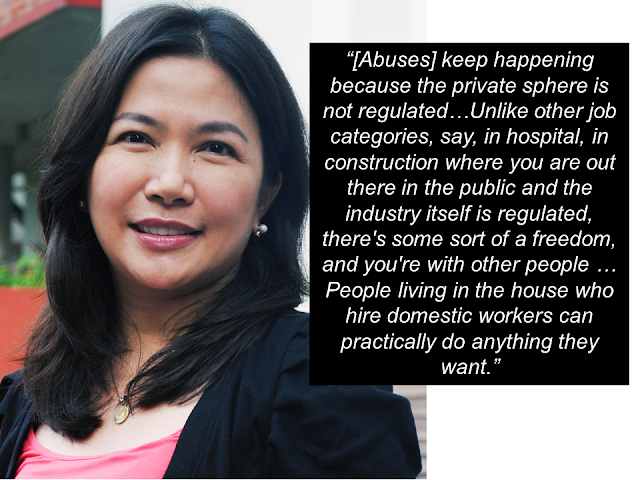MANILA, Philippines — KINUMPERMA ng Department of Labor and Employment o DOLE na nasa 100,000 ang bilang ng mga Filipinong naghihintay na maibabalik ang deployment ng mga household service workers o HSWs sa United Arab Emirates.
Kaugnay nito, kinumperma ni Labor Secretary Silvestre Bello III na simula Marso 31, muling magpapadala ng mga HSW ang Pilipinas sa nabanggit na bansa.
Ito'y matapos nagkasundo ang Pilipinas at UAE sa tinaguriang “historic” agreement para sa ikabubuti ng mga Filipino domestic helpers sa nabanggit na bansa.
“Marami ‘yan. Isang daang libo,” ang naging sagot ni Bello sa panayam ng ABS-CBN nang tinanong sa bilang ng mga OFWs na naghihintay sa muling pagbabalik ng deployment sa ng mga HSW sa UAE.
Ads
Paliwanag ng opisyal, maraming mga Filipino ang gustong mag-trabaho sa UAE dahil sa malaking sahod at patas na pagtrato sa mga household workers.
“Ganun karami, now that they are offering the deployment to the United Arab Emirates. Kasi alam niyo maganda ang pay scale doon, maganda ang treatment sa household service workers, kaya nga despite the fact na wala tayong deployment doon, marami tayong mga kababayan na pumupunta doon as tourists. And from tourist visa, nagkakaroon ng change to working visa,” dagdag pa ni Bello.
Taong 2014 nang sinuspende ng Pilipinas ang pagpapadala ng domestic helpers sa UAE.
Ayon sa Phippine delegation head na si Undersecretary Claro Arellano, sakop ng bagong deployment ang Unified Employment Contract na may mga probisyon kagaya ng standard employment contract na ginagamit sa Kuwait.
Napapaloob sa kontrata ang mahigpit na hakbang upang maprotektahan ang mga Filipino household workers ayon na rin sa direktiba ni Pangulong Rodrigo Duterte.
Ads
Sponsored Links
Sa ilalim ng unified contract, pawang may pananagutan ang employer, ang Foreign Recruitment Agencies at ang Philippine Recruitment Agencies sakaling may mangyaring masama sa Filipino workers.
Napapaloob din sa nasabing kontrata ang mga sumusunod:
- The right of the domestic worker to take at least eight (8) continuous hours of sleep every night;
- The right of the domestic worker to take a break that is paid, outside the residence of the employer at least one (1) full day every week;
- The right of the domestic worker to keep his/her passport or identification documents and the employer is not allowed to hold them;
- The employer shall allow the domestic worker to have and use cellular phones and other communication devices and the employer is prohibited from confiscating them;
- Opening of bank account under the name of the domestic worker for payment of salary;
- Allowing the domestic workers to cook her or his own food.
Maliban dito may napagkasunduan din ukol sa conversion ng tourist o visit visa patungong working visa.
Tulad ng napagkasunduan, aabisuhan ang Philippine Overseas Labor Office (POLO) kapag ang isang visit visa ay 'ikinonvert' sa employment visa para sa isang Filipino domestic worker.
Hindi din umano inirerekomenda ang conversion ng tourist visa patungong working visa dahil maaaring maging dahilan ito ng illegal recruitment at trafficking in persons.
©2020 THOUGHTSKOTO














